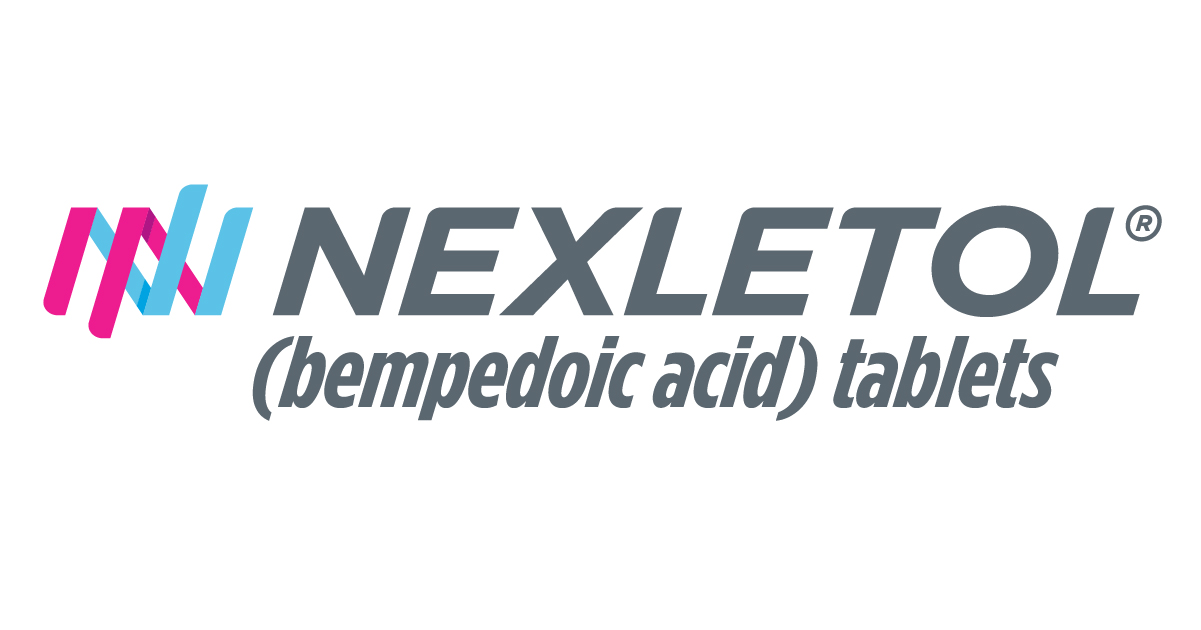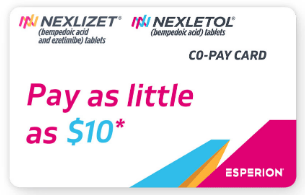Nexletol and Statin Intolerance – Navigating a New Path in Cholesterol Management
Nexletol and statin intolerance are pivotal topics in the current landscape of cholesterol management. With a significant number of individuals unable to tolerate statins, the need for alternative treatments has never been more pressing. This blog post aims to shed light on Nexletol, a novel medication offering hope to those challenged by statin intolerance. We will explore how Nexletol differs from traditional statins, delve into its efficacy and safety profile, and highlight the importance of lifestyle changes in enhancing treatment outcomes. Join us as we navigate through the intricacies of managing cholesterol in the era of Nexletol and statin intolerance, offering insights for those seeking effective strategies to maintain heart health.
Table of Contents
Nexletol: An Overview
Nexletol, a newer addition to cholesterol-lowering medications, has emerged as a significant alternative, especially for those with statin intolerance. Understanding its role, mechanism, and benefits is key for anyone navigating cholesterol management challenges.
What is Nexletol?
Nexletol, known scientifically as bempedoic acid, is a prescription medication designed specifically to lower LDL cholesterol (often referred to as “bad” cholesterol) levels in the blood. It’s particularly noteworthy for its use in patients who experience statin intolerance, offering a viable alternative when traditional statins are not suitable.
How Does Nexletol Work?
Unlike statins, Nexletol operates through a unique mechanism. It inhibits an enzyme called ATP citrate lyase, which plays a role in the liver’s production of cholesterol. By targeting this enzyme, Nexletol effectively reduces the synthesis of cholesterol, thereby lowering LDL cholesterol levels in the bloodstream.
Who is it For?
Nexletol is primarily prescribed for adults with a genetic condition that leads to high cholesterol (familial hypercholesterolemia) or those with established heart disease who require additional lowering of their cholesterol levels. Its role becomes crucial for patients who are either intolerant to statins or haven’t achieved desired cholesterol levels with statins alone.
Effectiveness of Nexletol
Clinical studies have shown that Nexletol, when used alone or in combination with other lipid-lowering therapies, can significantly reduce LDL cholesterol levels. This reduction is a vital step in decreasing the risk of cardiovascular events like heart attacks and strokes, especially in individuals with statin intolerance.
Safety and Side Effects
While Nexletol is well-tolerated by many, it’s important to discuss its safety profile with a healthcare provider. Common side effects may include upper respiratory tract infections, muscle spasms, and elevated uric acid levels, among others.
Understanding Statins
Statins are a cornerstone in the management of high cholesterol, a condition that significantly increases the risk of heart disease and stroke. This section aims to shed light on statins, especially for those exploring options like Nexletol due to statin intolerance.
What are Statins?
Statins are a class of drugs commonly prescribed to lower cholesterol levels in the blood. They work by inhibiting an enzyme in the liver that is responsible for making cholesterol. By reducing the production of cholesterol, statins help in lowering the risk of heart attacks and strokes.
How Do Statins Work?
The primary action of statins is to block the enzyme HMG-CoA reductase in the liver. This enzyme plays a key role in the synthesis of cholesterol. By inhibiting this enzyme, statins effectively reduce the total cholesterol, particularly LDL cholesterol (bad cholesterol), and triglycerides, while modestly increasing HDL cholesterol (good cholesterol).
Who Needs Statins?
Statins are typically prescribed for individuals with:
- High levels of LDL cholesterol.
- A history of cardiovascular events such as heart attack or stroke.
- Risk factors for heart disease, including diabetes, high blood pressure, or smoking.
The Benefits of Statins
Numerous studies have demonstrated that statins are effective in reducing the risk of major cardiovascular events. They are particularly beneficial for individuals with high cardiovascular risk, including those with existing heart disease or significant risk factors.
Understanding Statin Intolerance
While statins are effective, some individuals experience side effects or have statin intolerance, which may include muscle pain, digestive problems, or increased risk of diabetes. This intolerance has led to the exploration of alternative treatments like Nexletol.
Statin Intolerance: What Does it Mean?
Understanding statin intolerance is critical for those exploring alternatives like Nexletol. This term is frequently mentioned in discussions about cholesterol management, but what exactly does it entail?
Defining Statin Intolerance
Statin intolerance refers to the inability of a person to tolerate statins due to adverse side effects. This condition is recognized when patients experience significant discomfort or health issues that make continuing with statin therapy difficult or impossible. It’s important to note that statin intolerance is different from mere dislike or mild discomfort; it usually involves more serious or disruptive symptoms.
Common Symptoms of Statin Intolerance
Symptoms can vary but often include:
- Muscle aches, pain, or weakness without any evident cause.
- Digestive problems like nausea, diarrhea, or constipation.
- Increased levels of liver enzymes, indicating liver stress or damage.
- Memory loss or confusion, though these are less common and often reversible.
Prevalence of Statin Intolerance
A small but significant percentage of people prescribed statins report intolerance. It’s a real and sometimes challenging condition, which can limit the use of one of the most effective classes of drugs in reducing cardiovascular risk.
Managing Statin Intolerance
For those with statin intolerance, healthcare providers may:
- Adjust the dosage or switch to a different statin.
- Recommend non-statin medications like Nexletol.
- Suggest lifestyle changes and dietary adjustments.
Why Understanding Statin Intolerance Matters
Awareness of statin intolerance is vital because it helps in identifying suitable alternatives for managing cholesterol. For many, transitioning to a medication like Nexletol can provide a way to effectively manage cholesterol without the discomfort associated with statin use.
Comparing Nexletol with Statins
When managing cholesterol, particularly in cases of statin intolerance, it’s important to understand the differences between Nexletol and statins. This comparison sheds light on how each medication works and their respective roles in cholesterol management.
Mechanism of Action
- Statins: They primarily work by inhibiting the enzyme HMG-CoA reductase in the liver, which is crucial in the body’s synthesis of cholesterol. This results in a significant reduction in LDL (bad cholesterol) levels.
- Nexletol: It operates differently by inhibiting ATP citrate lyase, another enzyme involved in cholesterol production. While it also lowers LDL levels, its mechanism of action is distinct from that of statins.
Efficacy in Reducing Cholesterol
- Statins: Known for their potent effect on lowering LDL cholesterol, they are often the first line of treatment for high cholesterol and reducing cardiovascular risk.
- Nexletol: While effective in lowering LDL cholesterol, it is generally considered when statins are not an option due to intolerance or when additional LDL reduction is needed.
Side Effect Profile
- Statins: Common side effects include muscle aches, increased liver enzymes, and occasionally, digestive issues. Statin intolerance is characterized by these side effects being more severe or disruptive.
- Nexletol: Its side effects can include upper respiratory tract infections, muscle spasms, and increased uric acid levels. However, it may be better tolerated by those who are statin intolerant.
Usage and Prescription
- Statins: Widely prescribed for a broad range of patients, from those with high cholesterol to those with a history of cardiovascular events.
- Nexletol: Often prescribed for those specifically with statin intolerance or in combination with other cholesterol-lowering treatments for added efficacy.
Patient Considerations
- Statins: Ideal for a wide variety of patients, unless specific contraindications like statin intolerance exist.
- Nexletol: A valuable alternative for those who cannot tolerate statins or need additional cholesterol management alongside other treatments.
Cost of Nexletol vs. Statins
- Statins: They are generally more affordable and widely available. Most statins are available as generic drugs, which significantly reduces their cost.
- Nexletol: Being a newer medication, Nexletol is typically more expensive than most statins. As of now, there is no generic version available, which often results in higher out-of-pocket costs for patients.
Insurance Coverage
- Statins: Due to their established use and generic availability, most insurance plans, including Medicare, typically cover statins, often with a lower co-pay.
- Nexletol: Insurance coverage for Nexletol can vary. Some insurance plans may cover it, but this often comes with higher co-pays or specific conditions, such as proof of statin intolerance.
Financial Assistance and Patient Support Programs
For those facing high costs for Nexletol, financial assistance programs or patient support services offered by the manufacturing company can be a valuable resource. These programs are designed to help reduce the financial burden on patients who qualify.
Evaluating Your Options
When choosing between Nexletol and statins, it’s important for patients to discuss with their healthcare providers and insurance companies to understand the full scope of the financial implications. Evaluating the cost against the benefits and potential side effects is key in making an informed decision.
Lifestyle Modifications and Complementary Therapies
While medications like statins and Nexletol play a crucial role in managing high cholesterol, lifestyle modifications and complementary therapies are equally important. These changes can enhance the effectiveness of medications and contribute to overall heart health.
Dietary Changes
A heart-healthy diet is foundational in managing cholesterol. Key dietary changes include:
- Reducing saturated and trans fats.
- Increasing intake of fruits, vegetables, whole grains, and lean proteins.
- Incorporating foods rich in omega-3 fatty acids, like salmon and flaxseeds.
Regular Physical Activity
Exercise plays a significant role in improving cholesterol levels and overall heart health. Recommendations typically include:
- At least 150 minutes of moderate aerobic activity or 75 minutes of vigorous activity per week.
- Muscle-strengthening activities on two or more days per week.
Weight Management
Maintaining a healthy weight is essential in controlling cholesterol levels. Even a small amount of weight loss can significantly impact cholesterol and overall health.
Smoking Cessation and Limiting Alcohol Intake
Quitting smoking and moderating alcohol consumption are vital steps. Smoking cessation improves HDL (good cholesterol) levels, while excessive alcohol intake can raise triglyceride levels.
Stress Management
Chronic stress may indirectly affect cholesterol levels. Techniques like meditation, yoga, and deep breathing can be beneficial in managing stress.
Related: Ketogenic Diet: Understanding Its Benefits and Challenges
Conclusion
Managing cholesterol is a critical aspect of maintaining heart health. For those who cannot tolerate statins, Nexletol offers hope and an effective alternative. However, it’s important to remember that medication is just one part of the puzzle. A heart-healthy lifestyle, along with regular medical consultations, plays an indispensable role in this journey.
As research continues and medical science advances, the options for managing high cholesterol will likely expand and improve. Until then, understanding and utilizing the available tools – from Nexletol to diet and exercise – is the best strategy for anyone looking to take control of their cholesterol and, by extension, their overall heart health.





